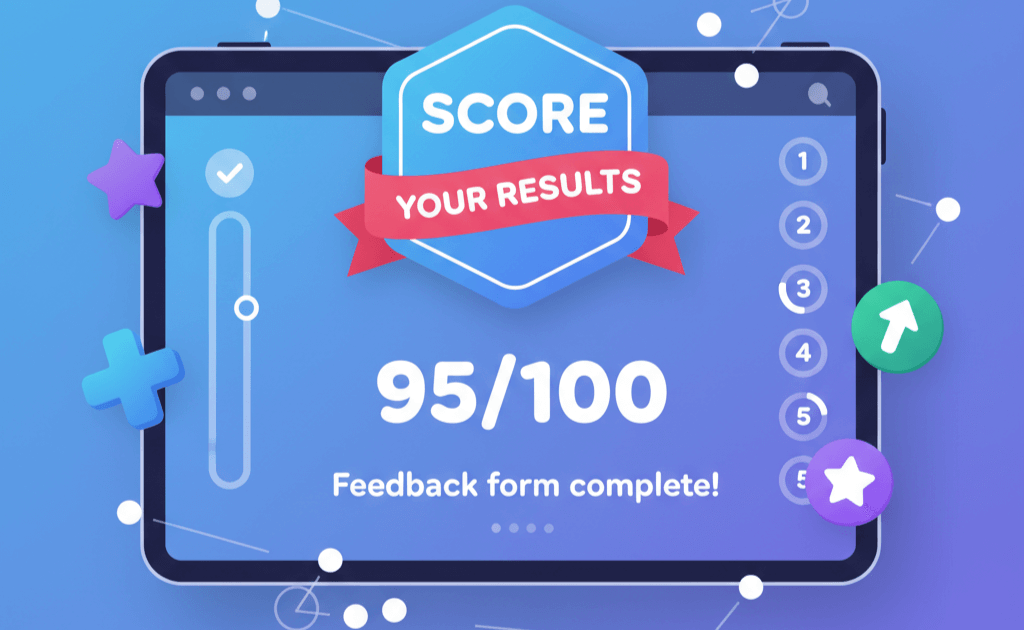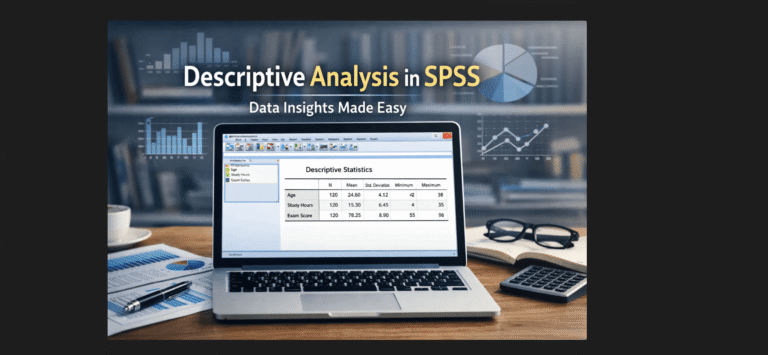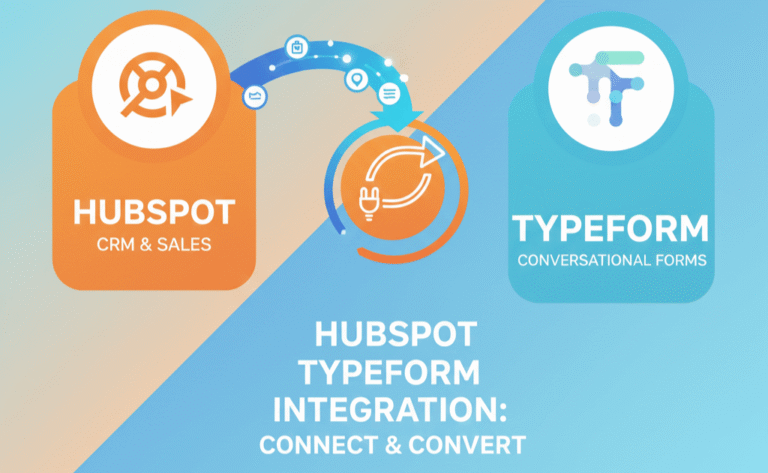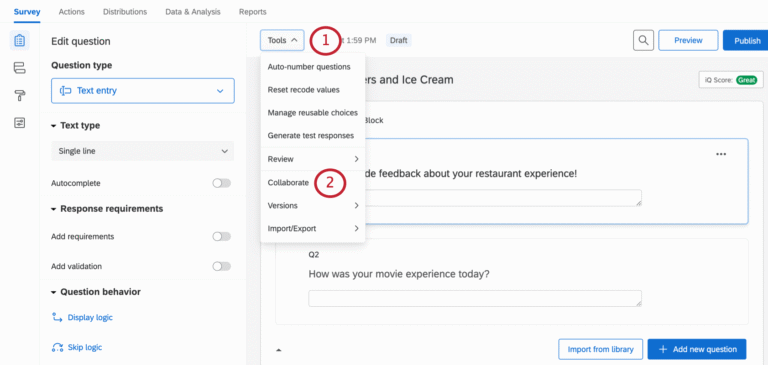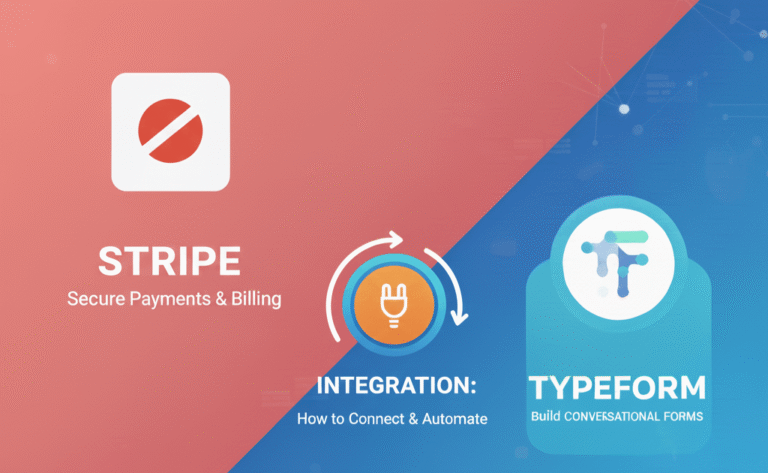Every form has a purpose. Some collect feedback, others test knowledge, and many assess users or qualify leads. Typeform scoring allows you to turn forms into intelligent tools that calculate results automatically, helping you interpret responses in real time.
If you are building a quiz, assessment, or weighted survey, understanding how Typeform scoring works is essential. Many users struggle with score calculations, logic jumps, and result displays, especially when working with multiple outcomes or advanced logic. This guide explains how Typeform scoring actually works, how quiz scores are calculated, and where common limitations appear.
Understanding Typeform Scoring
At its core, Typeform scoring assigns numerical values to answers and sums them to generate a final score. This feature is most commonly used for:
- Knowledge quizzes
- Personality or outcome quizzes
- Training assessments
- Lead qualification forms
For example, in a quiz with five questions, each correct answer might be worth one point. Typeform calculates the total score automatically and can display it at the end of the form. This makes scoring useful for interactive forms where respondents expect immediate feedback.
Beyond basic quizzes, Typeform scoring is often used for weighted evaluations, where some answers contribute more to the final score than others. This is why many users search for terms like Typeform quiz scoring or Typeform calculate score. They are not just looking to assign points, but to turn responses into meaningful results.
How Typeform Scoring Actually Works (Simple Example)
Understanding scoring becomes much easier with a clear example.
Imagine a three-question quiz:
- Question 1: Correct answer = 1 point
- Question 2: Correct answer = 1 point
- Question 3: Correct answer = 1 point
As respondents answer each question, Typeform records the assigned values. At the end of the form, the platform calculates the total score out of 3 and can display it using a result statement such as:
“Your score is {{score}} out of 3.”
This same logic applies to more complex scenarios, including weighted scoring where certain answers carry higher values. The key limitation is that scoring works best when logic paths and score assignments are carefully planned before the form is published.
Step-by-Step: How to Add and Automate Scores in Typeform
Setting up scoring in Typeform follows a predictable process.
Step 1: Enable Scoring
Within each eligible question, enable scoring and assign numerical values to each answer option.
Step 2: Assign Points Strategically
Points can represent correctness, importance, or risk. Some forms use positive scores, others use negative values to flag undesirable responses.
Step 3: Use Logic Jumps for Score-Based Outcomes
Typeform logic allows you to route respondents based on score ranges. High scorers can see one result screen, while lower scorers see another.
Step 4: Display Results Automatically
You can insert the calculated score into a statement so users see their results immediately after submission.
Step 5: Test Every Logic Path
Testing is critical. Many scoring issues occur because one logic condition overrides another or sends users down unintended paths.
Using Logic and Hidden Fields for Smarter Scoring
For more advanced use cases, scoring can be combined with logic jumps and hidden fields.
Hidden fields allow external data, such as campaign source or user category, to influence scoring without user input. This is especially useful for segmentation and adaptive assessments.
For example, different respondent groups can receive different scoring weights, or users can be routed to unique result pages based on combined score logic. While powerful, this setup requires precision. Small errors in logic conditions or field naming can break scoring entirely.
Need Accurate Typeform Scoring Without Logic Errors?
We design and test Typeform scoring systems for quizzes, assessments, and surveys so calculations, logic, and results work exactly as intended.
✔1,000+ surveys and scoring workflows delivered ✔PhD-level survey design expertise ✔Independent support, not affiliated with Typeform ✔Scoring logic tested before launch
Advanced Scoring Applications
Once the basics are in place, Typeform scoring can support more advanced workflows:
- Weighted scoring for prioritizing key questions
- Conditional scoring where points apply only under specific conditions
- Outcome quizzes based on score ranges rather than totals
- Integrations that send scores to tools like Google Sheets, Airtable, or statistical software
These setups are common in training programs, research studies, and structured assessments where results must be consistent and analyzable.
Showing Different Endings Based on Score in Typeform
One of the most practical uses of Typeform scoring is the ability to show different endings based on a respondent’s score. This is commonly used in quizzes, assessments, and outcome-based forms where results depend on performance or response quality.
Typeform allows you to display different ending screens by combining scoring with logic jumps. Once a total score is calculated, logic conditions can route respondents to specific endings. For example, users scoring above a certain threshold can see a success message, while lower scores trigger a feedback or improvement screen.
This approach is especially useful for knowledge tests, training assessments, and personality-style quizzes. Instead of showing the same ending to everyone, the form adapts dynamically based on score ranges.
However, configuring score-based endings requires careful logic setup. Overlapping score ranges, missing conditions, or multiple endings can prevent the correct result from displaying. This is why many users encounter issues when trying to show different endings based on score in Typeform, even when scoring appears to be enabled correctly.
Testing every score path before publishing is essential. Each ending should correspond to a clearly defined score range, and logic conditions should be mutually exclusive to avoid conflicts.
Typeform Scoring Not Working? Common Issues
When scoring fails, it is usually due to configuration errors rather than platform limitations. Common problems include:
- Logic jumps that conflict with scoring conditions
- Multiple endings that prevent score calculation
- Incorrect hidden field references
- Overlapping score ranges that cancel each other out
Previewing every possible path before publishing helps prevent these issues. Most scoring errors are discovered only after responses are collected, which can compromise data quality.
When Professional Setup Makes Sense
Typeform scoring may appear simple, but it becomes complex when used for real decision-making. Misconfigured scoring can distort results, invalidate assessments, or misclassify respondents.
This is where professional setup support can add value. At myspsshelp.com, we help clients design, test, and automate Typeform scoring systems for quizzes, surveys, and assessments. This includes score logic, result screens, integrations, and validation testing to ensure accuracy.
If your form relies on scoring for analysis, segmentation, or reporting, precision matters more than speed.
Conclusion
Typeform scoring transforms standard forms into dynamic tools that calculate results automatically. From simple quizzes to advanced outcome-based assessments, scoring adds structure and meaning to responses.
However, scoring depends heavily on correct logic, clean structure, and thorough testing. Small mistakes can produce misleading results. Understanding how scores are calculated, how logic interacts with scoring, and where limitations exist helps you decide whether a basic setup is sufficient or expert configuration is required.
If you are planning a quiz, assessment, or scored survey and need reliable results, structured setup support from myspsshelp.com can help ensure your scoring works exactly as intended.

